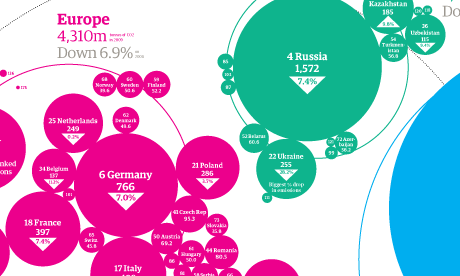MOVE to SAVE; Join Red Tape Movement at http://www.moving-planet.org/events/in/etawah/428 on 24th Sept. 2011.
This blog is for the followers of RED TAPE MOVEMENT. This movement is running for the saving of the existing trees by binding red tape on tree stem.
Saturday, September 24, 2011
Friday, April 29, 2011
Monday, April 4, 2011
Appreciation from British Embassies
British Embassies of Guatemala City and Ukraine appreciated our work on Earth Hour on 24th March 2011. We are thankful to British Embassies of Guatemala City and Ukraine and their respective respected Ambassadors for the appreciation and also thankful to our savings agents and peoples of Ekdil town area. My special thanks to respected Mr. Vijyendra Pandian, I.A.S., Dr. Rajeev Chauhan, Environmentalist and Mr. Sanjay Saxena, Press Reporter for active participation.
Monday, March 21, 2011
Sunday, March 13, 2011
Earth Hour News: A message from our Global Ambassador Miranda Kerr
Earth Hour News: A message from our Global Ambassador Miranda Kerr: "I am pleased to have been asked to be the global ambassador for Earth Hour 2011. Each of us has a responsibility for the sustainability of..."
Wednesday, March 2, 2011
Saturday, February 19, 2011
The IUCN Forest Conservation Programme Newsletter Issue 42 2010
Read arborvitae newsletter to know that How sexy are forests? Read here.
Friday, February 18, 2011
Tuesday, February 15, 2011
Monday, February 14, 2011
Friday, February 11, 2011
Friday, February 4, 2011
IUCN - News

The 9th UN Forum on Forests (UNFF9) is drawing to a close. With just over 24 hours left, negotiators are entering lockdown to get a meaningful declaration in place for Friday's finish.
Stewart Maginnis is IUCN's head of delegation and IUCN's Director for Environment and Development. He explains just where the negotiations are at present.
Wednesday, February 2, 2011
World carbon dioxide emissions data

World carbon dioxide emissions are one way of measuring a country's economic growth too.
And the latest figures - published by the respected Energy Information Administration - show CO2 emissions from energy consumption - the vast majority of Carbon Dioxide produced............ Read the complete story HERE.
[Source: guardian]
Tuesday, February 1, 2011
WORLD WETLANDS DAY- 2nd Feb 2011


2 February each year is World Wetlands Day. It marks the date of the adoption of the Convention on Wetlands on 2 February 1971, in the Iranian city of Ramsar on the shores of the Caspian Sea. Each year since 1997, government agencies, non-governmental organizations, and groups of citizens at all levels of the community have taken advantage of the opportunity to undertake actions aimed at raising public awareness of wetland values and benefits in general and the Ramsar Convention in particular.
Wetlands are among the most productive ecosystems in the world, comparable to rain forests and coral reefs; they are found on every continent except Antarctica and from the tundra to the tropics. Due to typical functions like- wildlife habitat and food chain support, groundwater recharge, water purification, nutrient retention and flood control- wetlands are considered as "biological supermarkets", "nurseries of life" and "the kidneys of the landscape" (Barbier et al. 1997; Mitsch and Gosselink 1993). These are facing threats for existence; major threats are- anthropogenic activities, agriculture activities, deforestation, pesticides pollution, pollution, introduced species threats due to Eichhornia etc. Migrating birds use wetlands to rest and feed during their cross-continental journeys and as nesting sites when they are at home. As a result, wetland loss has a serious impact on these species.
The theme for World Wetlands Day 2011 is Wetlands and Forests and slogan is– Forests for water and wetlands. 2011 is a special year for Ramsar as we are celebrating our 40th anniversary. Best Wishes. Read the Message of Mr Anada Tiéga, Secretary General, Ramsar Convention, by clicking here and for Ramsar Sites in Google Earth click here.
[Source: Ramsar and Red Tape Movement]
Friday, January 21, 2011
Long-distance migration may help reduce infectious disease risks for many animal species
It's a common assumption that animal migration, like human travel across the globe, can transport pathogens long distances, in some cases increasing disease risks to humans. West Nile Virus, for example, spread rapidly along the East coast of the U.S., most likely due to the movements of migratory birds. But in a paper just published in the journal Science, researchers in the University of Georgia Odum School of Ecology report that in some cases, animal migrations could actually help reduce the spread and prevalence of disease and may even promote the evolution of less-virulent disease strains. Read detailed report here.
[Source: eurekalert]
[Source: eurekalert]
Expanding Sustainable Timber in Tanzania

There are many negative environmental impacts of globalization — increased pollution, depleted natural resources and an overtaxed food system, to name a few.
The East African blackwood tree (Dalbergia melanoxylon) — known as mpingo in Swahili — may sound exotic to people outside Africa, but chances are you’ve seen it. Its wood is prized for use in musical instruments like clarinets and bagpipes, as well as the traditional sculptures seen in African villages and on Western city streets. However, unregulated logging has seriously depleted much of the tree’s native habitat, posing a threat to the local economy as well as the species that dwell in these forests.
[Source: Conservation International Blog]
The Plant List: a working list of all known plant species

The Plant List is a working list of all known plant species. Version 1, released in December 2010, aims to be comprehensive for species of Vascular plant (flowering plants, conifers, ferns and their allies) and of Bryophytes (mosses and liverworts). It does not include algae or fungi. Version 1 contains 1,244,871 million scientific plant names of which 298,900 are accepted species names. It includes no vernacular or common plant names.
[Source: The Plant List]
Wednesday, January 19, 2011
Species loss tied to ecosystem collapse and recovery
Species loss tied to ecosystem collapse and recovery; Conservation biologists regularly note the precipitous decline of key species, such as cod, bluefin tuna, swordfish and sharks. Lose enough of these top-line predators (among other species), and the fear is that the oceanic web of life may collapse.
[Source: Brown University]
[Source: Brown University]
Saturday, January 15, 2011
Monday, January 3, 2011
Subscribe to:
Posts (Atom)



